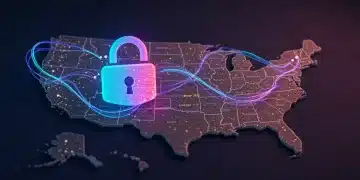Supreme Court hears landmark case on voting rights

The Supreme Court hears a landmark case on voting rights that will determine the legitimacy of voter regulation laws and their impact on election accessibility and integrity across the United States.
The Supreme Court hears landmark case on voting rights, raising critical questions about democracy and equal access to the polls. What does this mean for voters everywhere? Let’s delve into the key aspects.
Overview of the landmark case
The landmark case the Supreme Court is hearing centers around voting rights, focusing on pivotal issues that affect voters nationwide. Understanding the details of this case is essential for grasping its potential impact on democracy.
Key Issues at Stake
Several critical issues are being debated in this case. These include questions about the legality of certain voting practices and their effects on voter turnout. The outcome could change how elections are conducted across the country.
Background of the Case
This case emerged from a series of controversial laws passed in various states. These laws were aimed at regulating voting procedures but have faced accusations of disenfranchising certain groups of voters. Critics argue that such measures can create unfair barriers, thus undermining the democratic process.
Arguments Presented
- The need for protecting voting rights for all citizens is a primary argument.
- Supporters of the laws claim they are necessary to prevent election fraud.
- Opponents of these measures emphasize the risk of voter suppression.
- Legal precedents will also play a crucial role in determining the outcome.
The Supreme Court’s decision will likely hinge on these arguments, as justices consider how to balance election integrity with accessibility. This balancing act is not just significant legally; it resonates deeply with the public’s view on what democracy should mean in practice.
As public interest grows around this case, many citizens are engaging in discussions about what fair access to the polls should look like. This court case stands as a reminder of the ongoing struggle to ensure that every vote counts.
Key arguments presented by both sides

The key arguments in the Supreme Court case on voting rights reveal a deep divide between supporters and opponents of the contested laws. Each side presents persuasive points aimed at influencing the Court’s decision.
Arguments for Voter Regulation
Supporters of the regulations claim they are essential for maintaining election integrity. They argue that stringent checks can prevent possible instances of fraud, safeguarding the democratic process. These proponents emphasize that their intentions are to enhance the fairness of elections.
Concerns About Voter Suppression
On the other hand, critics argue that these regulations disproportionately affect marginalized communities. They highlight how strict rules can create barriers, making it difficult for certain groups to vote. This side warns that the push for regulation can lead to voter suppression, undermining democracy itself.
Legal and Moral Implications
- Proponents argue that laws are necessary to protect the electoral process.
- Opponents point out historical precedents of discrimination in voting.
- Both sides cite potential effects on future elections.
- The discussion also involves the balance between state power and individual rights.
The exchange of arguments highlights the complexity of the issue, reflecting broader societal views on voting rights. This case is not merely legal; it touches upon the essence of democratic values and citizen participation, prompting a national dialogue on the importance of access to the ballot.
Potential implications for future voting laws
The potential implications of the Supreme Court’s decision on voting rights are significant and may reshape the future of voting laws across the country. Understanding these implications is vital for anyone interested in the electoral process.
Impact on State Legislation
If the Court rules in favor of stricter voting regulations, many states may adopt similar laws, believing they have judicial backing. This could lead to a patchwork of voting laws varying greatly from state to state, affecting voter access and participation. States could also introduce more stringent ID requirements, limiting access for some voters.
Future Legal Precedents
On the other side, a ruling against these measures may set a powerful legal precedent. This could invalidate many restrictive laws currently in place and encourage states to adopt more inclusive voting practices. Such a decision may reaffirm the principle that voting is a fundamental right for all citizens.
Voter Engagement and Public Trust
- A decision to support voter suppression tactics might lead to decreased public trust in the electoral system.
- In contrast, a ruling in favor of voting rights could increase voter engagement and participation.
- Public campaigns advocating for voter access might gain momentum following a positive decision.
- Ultimately, how the public perceives this ruling will influence future civic participation.
As this important case unfolds, activists and community leaders are already gearing up for potential changes in the legal landscape. The outcome will resonate far beyond the courtroom, shaping the conversation around voting rights and civic responsibility for years to come.
Public response and reactions

The public response to the Supreme Court case on voting rights has been intense and varied. Many community leaders, activists, and ordinary citizens are closely watching the proceedings, as they believe the outcome will significantly affect their ability to vote.
Grassroots Movements
Grassroots organizations have mobilized to raise awareness about the importance of this case. Through rallies, social media campaigns, and community meetings, supporters are urging their fellow citizens to engage in the conversation about voting rights. These movements aim to inform the public about the implications of voter suppression tactics.
Concerns from Voter Advocacy Groups
Various voter advocacy groups have expressed deep concerns about the potential for voter suppression if the Supreme Court rules in favor of stricter voting regulations. They argue that such decisions could disproportionately impact already vulnerable populations, such as minorities and low-income individuals.
Passionate Debates Online
- Debates on social media are often heated, with both sides presenting their arguments.
- Many people are sharing personal stories about their voting experiences and the challenges they faced.
- Online petitions have gained traction as individuals seek to voice their opposition to restrictive laws.
- Influencers and public figures are also using their platforms to advocate for voting rights.
In contrast, some individuals believe that regulations are necessary to ensure election integrity. They argue that these measures can prevent voter fraud, which they perceive as a significant issue. This division highlights the broader societal debate over the balance between access and security in the electoral process.
As the case unfolds, the public reaction will continue to evolve, reflecting deeper beliefs about democracy and citizenship in America. Citizens from all walks of life are engaged in discussions about what it truly means to have a fair and accessible voting system.
FAQ – Frequently Asked Questions about the Supreme Court Case on Voting Rights
What is the Supreme Court case about voting rights?
The case addresses controversial laws that regulate voting procedures, focusing on their implications for voter access and election integrity.
How might the ruling affect future voting laws?
Depending on the decision, it could either uphold stricter regulations or promote more inclusive voting practices across various states.
What is the public response to this case?
Public response is diverse, with many engaging in discussions about voting rights through social media, rallies, and community meetings.
Why are voting rights important?
Voting rights are crucial as they ensure every citizen’s voice is heard in a democracy, highlighting the importance of fair and accessible elections.





